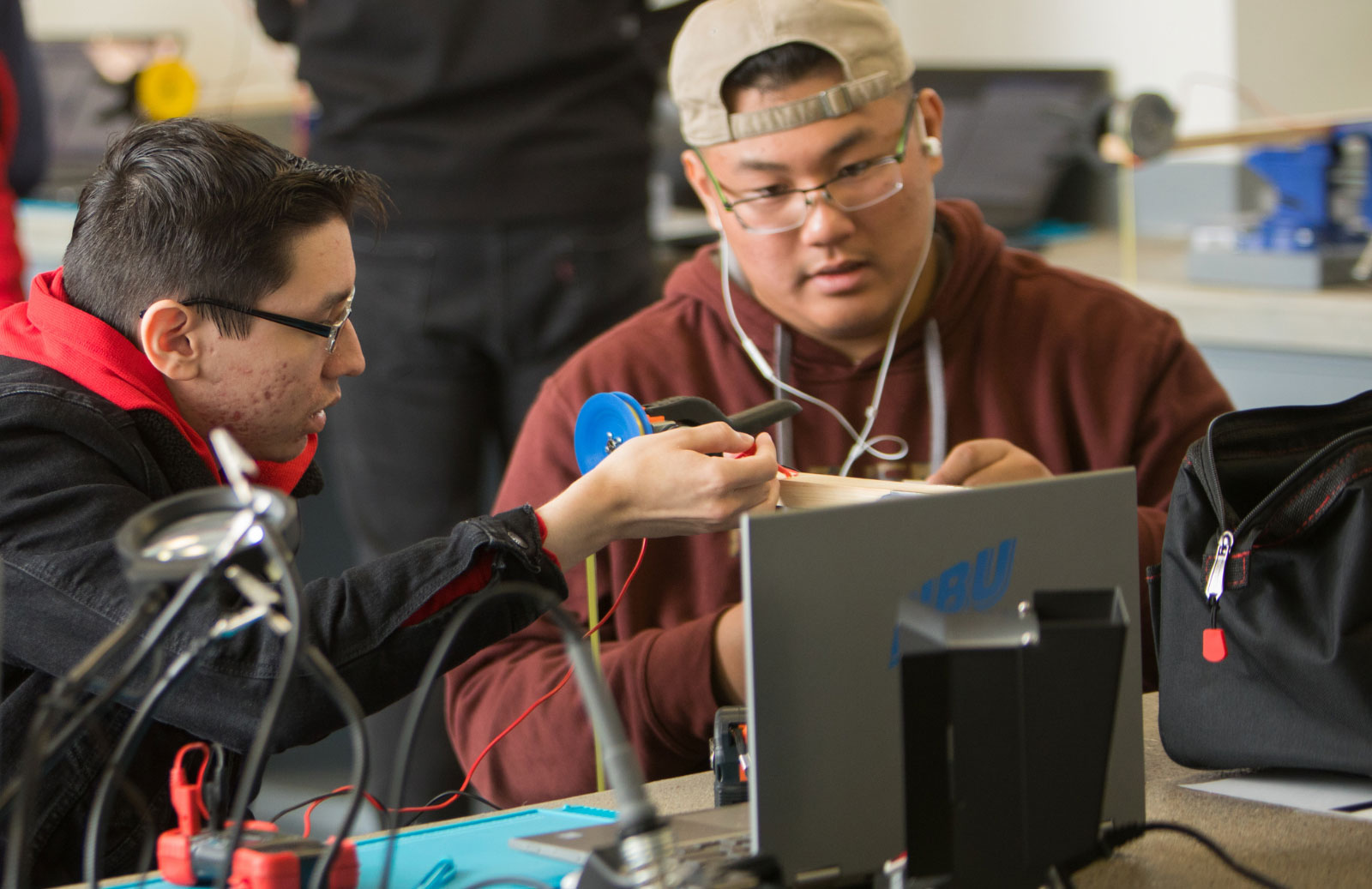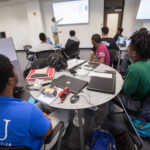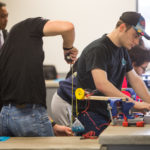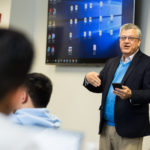By Dr. Melissa Carlton, Assistant Professor of Computer Science and Dr. Marian Zaki, Assistant Professor of Computer Science
Computer Science, Electrical Engineering, and Cyber Engineering are the inaugural Bachelor of Science degrees offered in the Department of Engineering at HBU. In the fall of 2021, HBU began offering an Information Systems degree as well. One of the first courses students in all four degrees experience is the Introduction to Computer Programming course. In this course, students have an opportunity to build their first minicomputer using a Raspberry Pi as part of their Securing America’s Future through Engineering (SAFE) Lab Cyber kits, while building a robot and smart factory utilizing their SAFE Lab Engineering kits. Students integrate hands-on active learning while using mini-projects to expand their programming, engineering and problem-solving skills. Throughout the semester, students are excited to have the opportunity to learn about memory modules, circuitry and the dangers of electrical current causing harm to their Raspberry Pi or Arduino. During the first circuit building activity, stories of individuals that incorrectly set up their Raspberry Pi and circuit connections are shared with students. This provides an opportunity to share how individuals within the Bible did not always make the correct choice, such as Jonah who ran from God, eventually realized his error while in the belly of a big fish, repented, and praised God. An incorrectly connected circuit may cause a Raspberry Pi from working, which fondly is referred to as a “fried Raspberry Pi”. However, when a mistake does occur it gives the opportunity to demonstrate grace and patience that students do not always have in their own lives.
In the second semester, students have practiced and tested various hands-on projects with their Raspberry Pis. This permits the curriculum to expand on that knowledge and grant the students a chance to create their very own Raspberry Pi project using the Python programming language. Projects in the past have included a beatbox, light-sensing mini blind system, roving web camera robot, various interactive games and learning systems. Students are encouraged to research solutions for those challenges they encounter while designing and developing their Final Pi projects. These projects are the foundation for building the students’ project and time management skills while working with a team. Relationships form and are nurtured in and out of the classroom. It is also during this time that students are comfortable asking during and outside of class for prayer as well as encouragement from faculty members.
The sophomore year greets students with a curriculum that includes data structures, systems programming, operating systems, and/or microprocessors. Students are challenged with shifting from Python programming language to JAVA and C programming languages as well as the Linux operating system. They learn more about logic gates, floating-point arithmetic, performance analysis and algorithms design and how each are important for the engineering of any computer system. It is during this year that students begin to acknowledge they are able to create something, which permits the integration of creation-related examples from the Bible. Unfortunately, students seem to test their ability to create something in six days as the Lord did, but learn study habits and the importance of asking for help earlier than the night an assignment is due.
Many students return for their junior year having taken courses to enhance their learning experiences. All are eager to learn and prepare for graduation. Computer science and cyber engineering students learn how to connect the computers they have built in their freshmen and sophomore years to a computer network or IT infrastructure as well as investigate the world of digital forensics, computer architecture, and theories of computing. Electrical engineering students pursue knowledge in electrical and electronic circuits. These courses are all important to preparing students for their respective internships that they participate in during the summer before returning to complete their final year at HBU.
During the senior year, an opportunity to design, develop, and build solutions for an industry problem greet students, which is in its inaugural semester this Fall 2021. Additionally, courses presenting the topics of applied cryptography, reverse engineering, data analytics, embedded systems, and SCADA systems are covered. Each degree and course infused with biblical guidance as well as faith-strengthening interactive hands-on project-based learning empowers a student with the tools and skills to serve both God and mankind. Graduation quickly approaches as the year passes. Our graduates are prepared and ready to begin their new journey as a member of their future employers.
Our founding dean of engineering, now HBU Provost, Dr. Stan Napper designated a Bible verse for the engineering programs in 2018,” …’The God of heaven Himself will prosper us; therefore we His servants will arise and build…’” (Nehemiah 2:20, NKJV). As the students, faculty, and staff continue to build and follow the Lord’s will, the God of heaven continues to grant success to HBU’s engineering programs. The largest engineering freshmen cohort was welcomed this semester is just one success. Another is the admission of students into the newest engineering degree: a Bachelor of Science in Information Systems. We are grateful for the support we have received and look forward to celebrating the first graduating class of computer scientists, cyber engineers, and electrical engineers (our pioneers) in May 2022.











